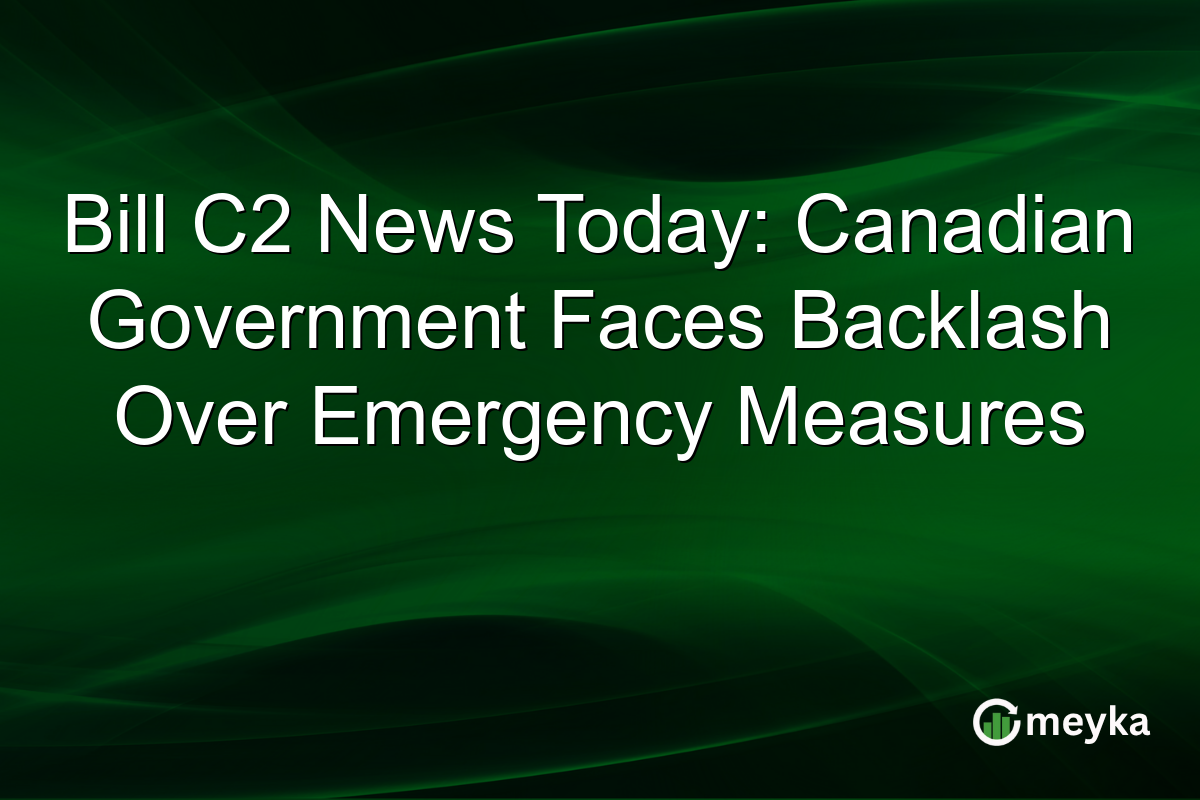Bill C2 News Today: Canadian Government Faces Backlash Over Emergency Measures
Today, the Canadian government faces a wave of criticism over Bill C2, which involves significant changes to emergency wage subsidies and pandemic-related support. With a 200% increase in online searches, it’s clear this issue is capturing widespread attention. The bill’s implications for economic recovery and job stability are under intense scrutiny, raising questions about government accountability in handling COVID-19 relief.
Understanding Bill C2’s Provisions
Bill C2 aims to extend the emergency wage subsidy extension while revising other COVID-19 support measures. Initially, these programs were crucial during the pandemic, offering relief to businesses and workers. However, the latest provisions have sparked debates. Critics argue that the extensions may not align with the current economic climate. As consumer demand rebounds, some believe continued subsidies could deter labor market recovery and fiscal responsibility. The government’s approach under this bill reflects ongoing efforts to balance immediate relief with long-term economic strategies. Yet, concerns about transparency and effectiveness remain. For more on the current sentiment, check this reaction on Bloomberg.
Economic Implications of Bill C2
The extension of emergency wage subsidies is central to Bill C2, designed to support struggling sectors. While immediate relief seems beneficial, some analysts warn of potential economic consequences. Continued subsidies may slow workforce reintegration, delaying market adjustments. Businesses may rely too heavily on government aid instead of transitioning to sustainable operations. Additionally, these measures could increase public debt, impacting future fiscal policies. The Canadian government faces the challenge of managing economic recovery without compromising fiscal health. As debates continue, stakeholders are keenly watching how these policies affect the broader economy.
Public Response and Legislative Accountability
Public reaction to Bill C2 has been mixed, reflecting its controversial nature. Many support the assistance given the pandemic’s ongoing challenges, yet others demand more effective solutions. Legislative accountability is a hot topic, as citizens question the transparency and intent behind these extensions. The government’s communication strategy and decision-making process are under review, with calls for clear, data-backed policies. With the potential for political ramifications, this situation emphasizes the need for balanced and responsive governance. More insights can be found in this Reuters article.
Final Thoughts
Bill C2 highlights the complex challenge of transitioning from crisis relief to economic recovery while maintaining legislative transparency. The backlash underscores the importance of balancing immediate support with long-term fiscal responsibility. As Canada continues to navigate post-pandemic realities, effective communication and strategic policymaking are essential. Policymakers need to adapt and innovate, ensuring that relief measures are both immediately helpful and sustainable in the long term.
FAQs
Bill C2 involves extensions and changes to the emergency wage subsidy and other COVID-19 support measures in Canada. It aims to continue financial assistance to businesses and workers affected by the pandemic.
Bill C2 has sparked debates due to concerns about its impact on economic recovery and labor market stability. Some argue it might delay workforce reintegration and increase public debt.
Businesses receiving extended subsidies may face challenges transitioning to normal operations. While aid provides relief, it could also lead to dependency, affecting long-term financial stability.
Disclaimer:
This is for information only, not financial advice. Always do your research.






